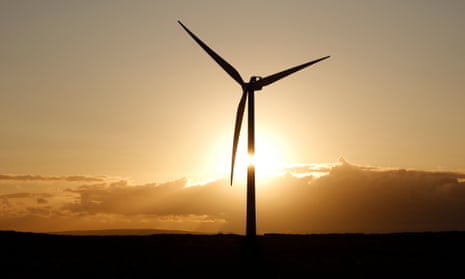The capacity of renewable energy has overtaken that of fossil fuels in the UK for the first time, in a milestone that experts said would have been unthinkable a few years ago.
In the past five years, the amount of renewable capacity has tripled while fossil fuels’ has fallen by one-third, as power stations reached the end of their life or became uneconomic.
The result is that between July and September, the capacity of wind, solar, biomass and hydropower reached 41.9 gigawatts, exceeding the 41.2GW capacity of coal, gas and oil-fired power plants.
Imperial College London, which compiled the figures, said the rate at which renewables had been built in the past few years was greater than the “dash for gas” in the 1990s.
Dr Iain Staffell, who undertook the research, said: “Britain’s power system is slowly but surely walking away from fossil fuels, and this quarter saw a major milestone on the journey.”
However, the amount of power from fossil fuels was still greater over the quarter, at about 40% of electricity generation compared with 28% for renewable sources.
In total, 57% of electricity generation was low carbon over the period, produced either by renewables or nuclear power stations.
In terms of installed capacity, wind is the biggest source of renewables at more than 20GW, followed by solar spread across nearly 1m rooftops and in fields. Biomass is third.
In the past year, coal capacity has fallen by one-quarter, and there are only six coal-fired plants left in the UK.
Coal operators have been affected by the UK’s carbon tax on electricity generation, as well as competition from gas, though they have enjoyed a recent fillip from high gas prices.
Fortunes for new gas power stations are mixed. This week, the German energy company RWE said it was freezing plans for a new 2.5GW gas plant in Tilbury, Essex. However, UK-listed SSE said it had broken ground on Tuesday on a new 840MW gas power station in Lincolnshire.
The Imperial College London research, which was commissioned by the gas, coal and biomass company Drax, also found the cost of balancing the energy system had risen to a 10-year high of £3.8m per day between July and September.
